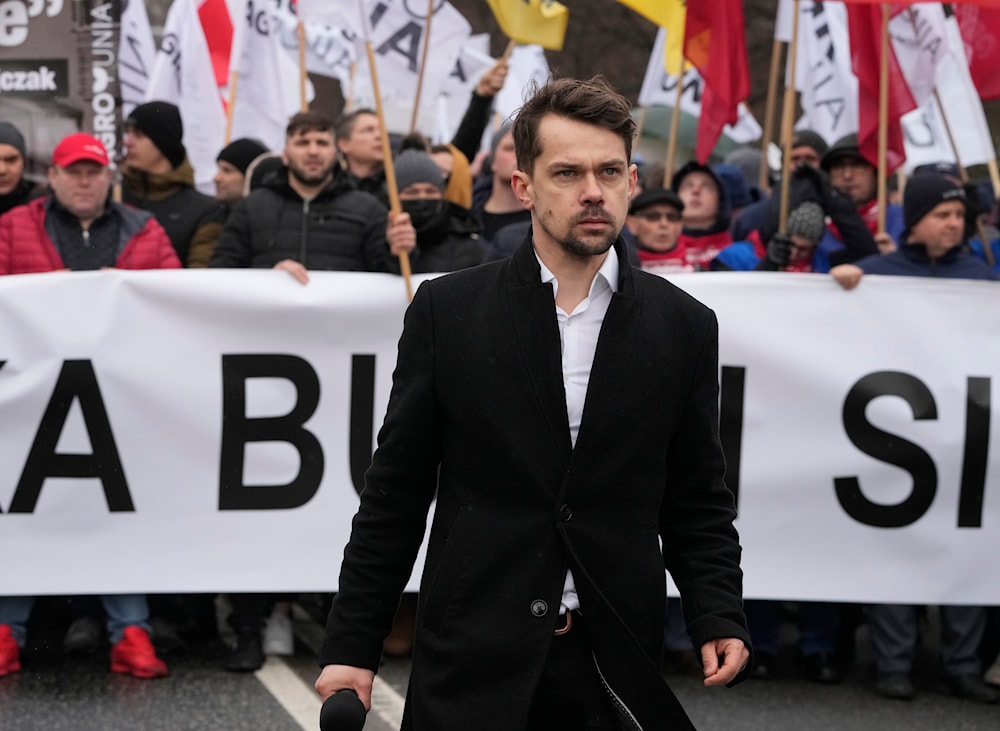Warsaw cancels talks with Kiev over corruption fears
Poland's deputy agriculture minister emphasizes that Warsaw will not negotiate with individuals facing criminal accusations.
-

Poland's Deputy Minister of Agriculture and Rural Development Michal Kolodziejczak, front, takes part in a protest against gas and fertilizer price hikes, in Warsaw, Poland, on February 23, 2022. (AP)
Poland has canceled negotiations with Ukraine regarding food imports, according to Dziennik Gazeta Prawna daily's report on Monday, following allegations of corruption against several Ukrainian representatives participating in the negotiations.
Talks were set to take place on May 14 to address trade disputes amid large-scale farmers' protests in Poland over importing cheap products from Ukraine.
Poland's Deputy Minister of Agriculture and Rural Development, Michal Kolodziejczak, informed the newspaper that Warsaw has opted not to negotiate with individuals facing allegations of corruption.
That said, Kolodziejczak refrained from naming specific individuals, but his statement coincides with the resignation of Ukrainian Agriculture Minister Nikolay Solsky. Along with several associates, Solsky faced allegations last month from Ukraine's National Anti-Corruption Bureau concerning the illegal acquisition of state-owned land.
Strengthening controls on Ukrainian agricultural products
On that note, it is unclear when the next round of talks between Warsaw and Kiev will take place, Kolodziejczak said, acknowledging that the Polish Agriculture Ministry has so far failed to resolve all issues relating to local farmers, and that “the situation is not easy.”
This comes after five EU member states submitted a resolution to strengthen controls on duty-free Ukrainian agricultural products in light of an oversupply of Ukrainian products in the EU markets.
A letter written jointly by Poland, Hungary, Bulgaria, Slovakia, and Romania asked Trade Commissioner Valdis Dombrovskis and Agriculture Commissioner Janusz Wojciechowski to be more wary of the impact of Ukrainian imports.
The five-member states said that measures agreed in April were insufficient and proposed that "exceptional and immediate preventive measures" be taken to force tougher restrictions on the inflow of a limited number of Ukrainian products.

 2 Min Read
2 Min Read









